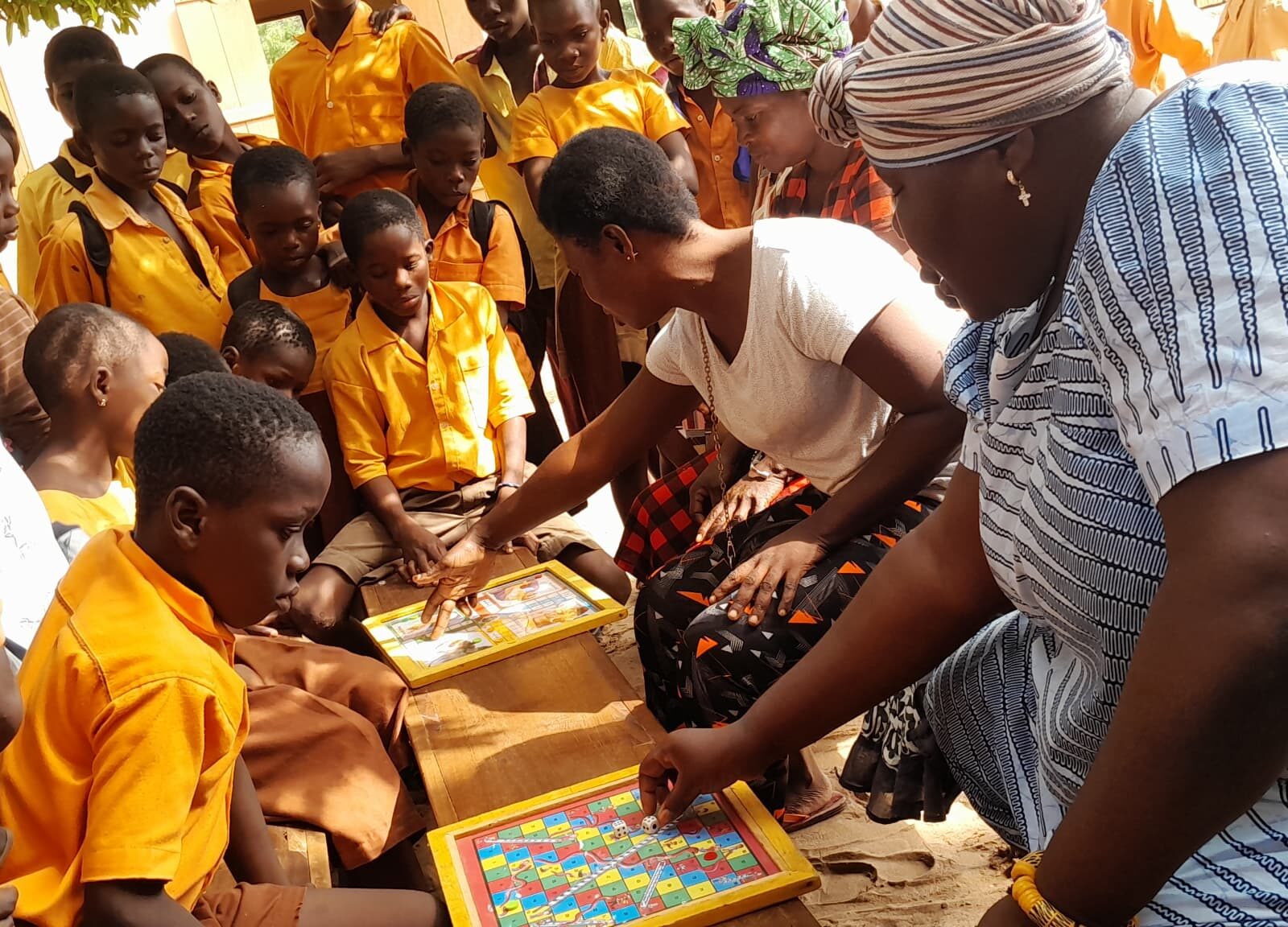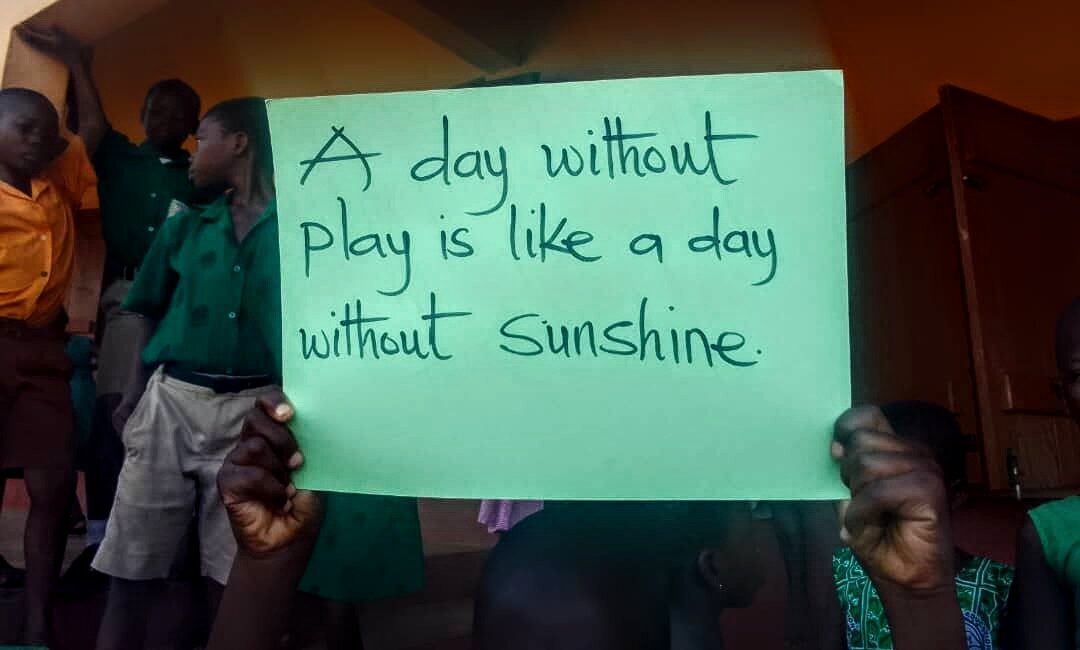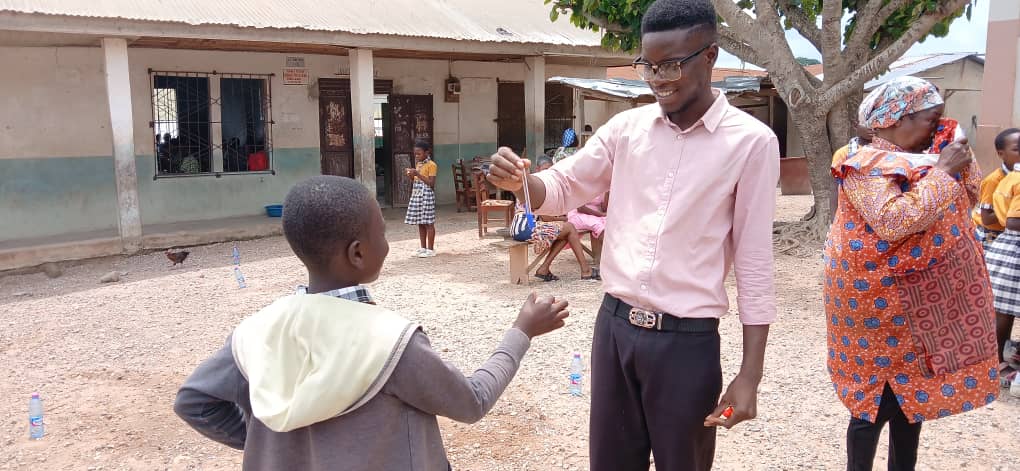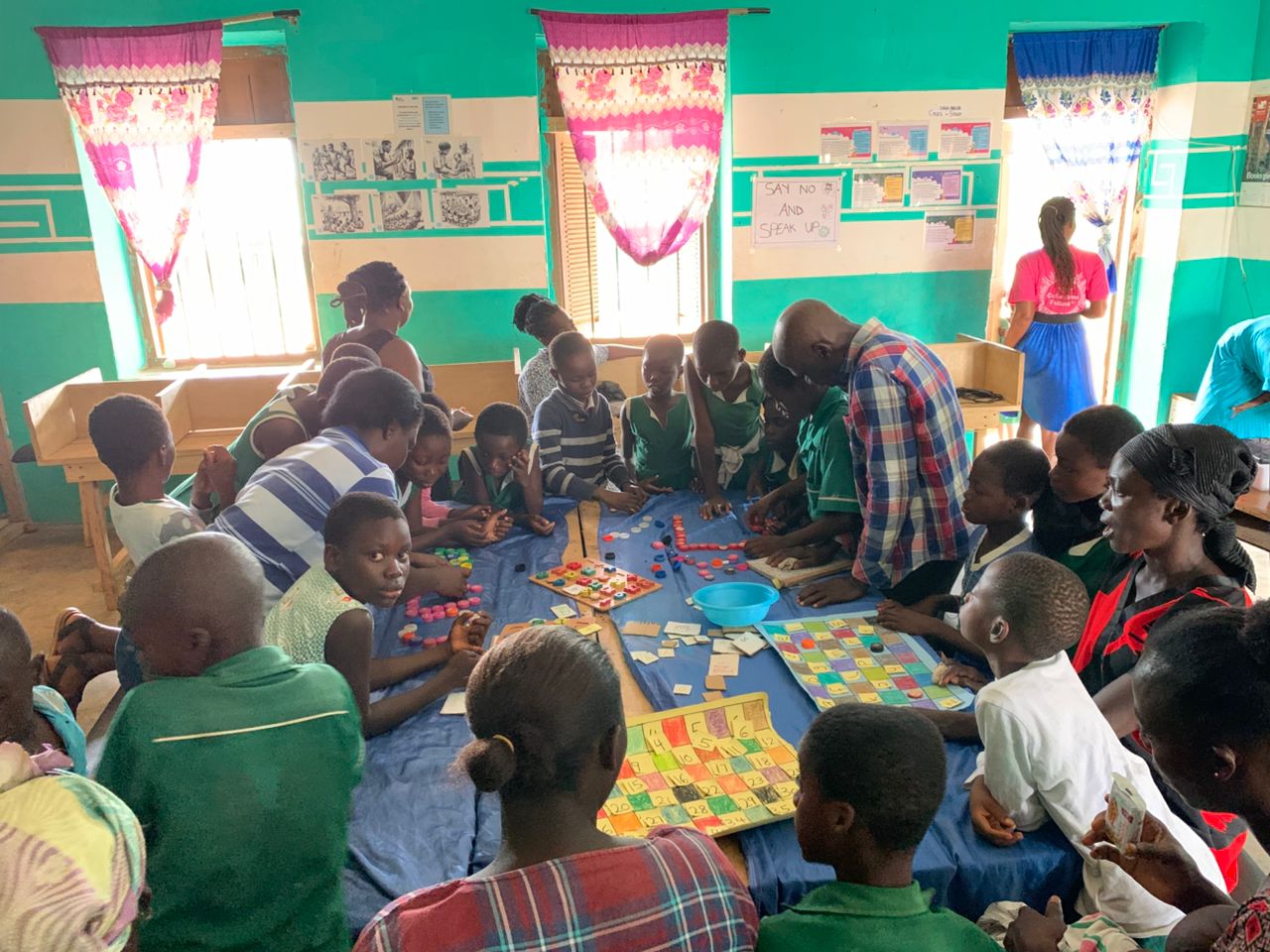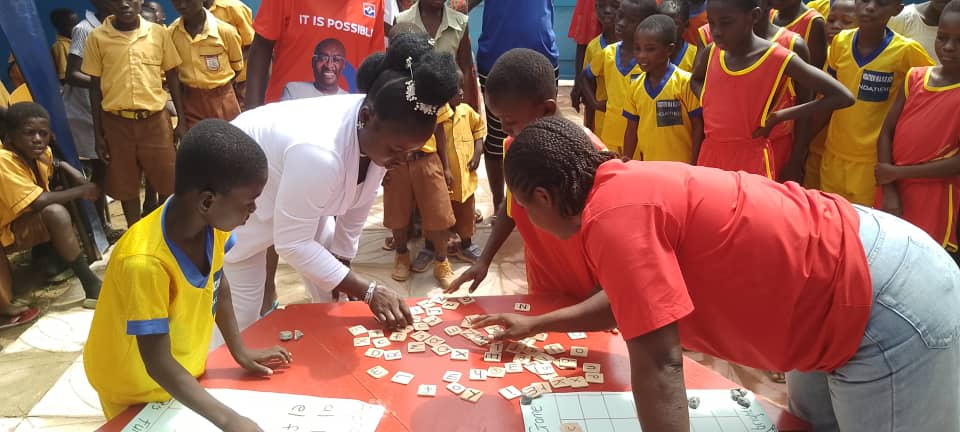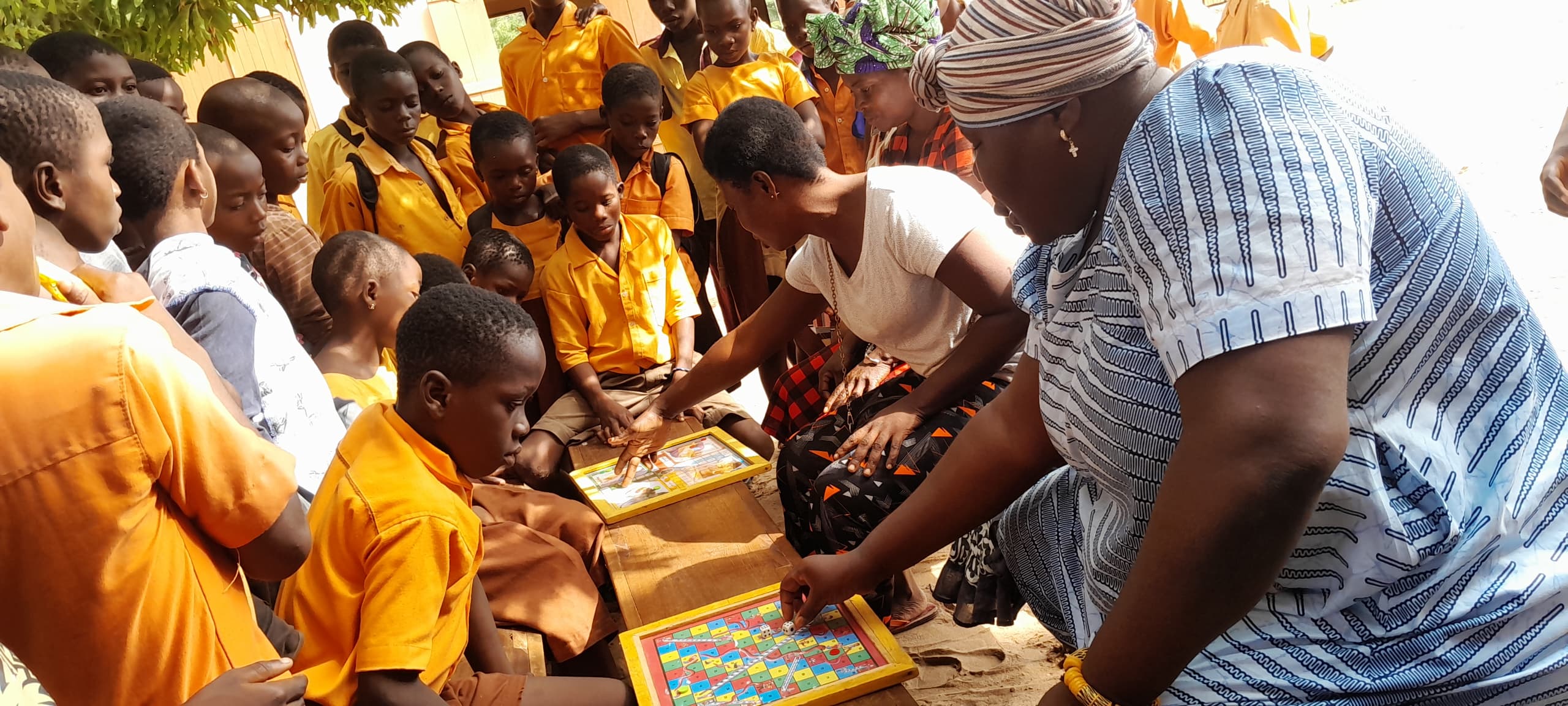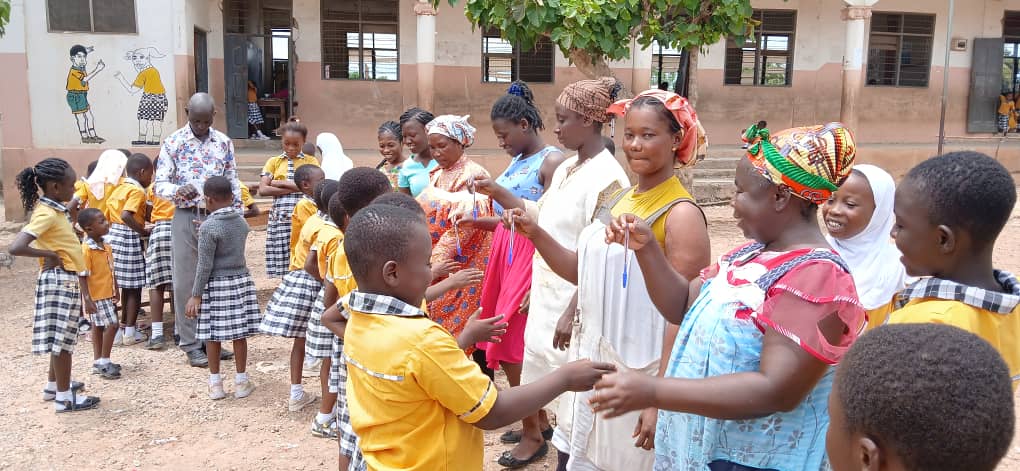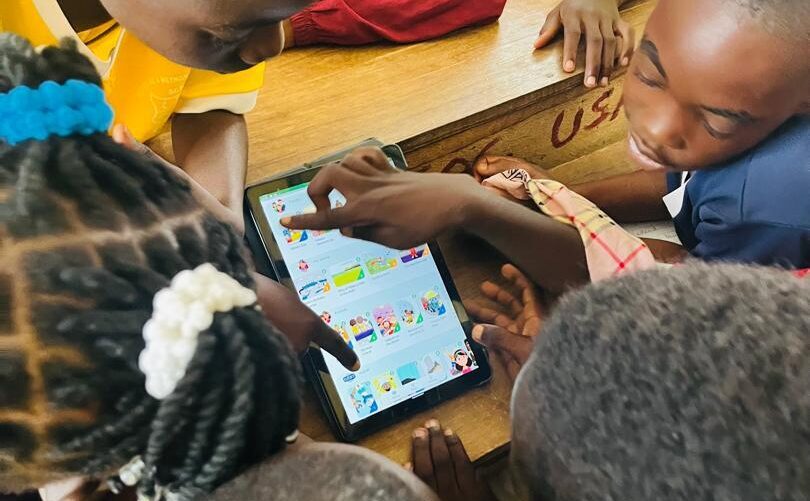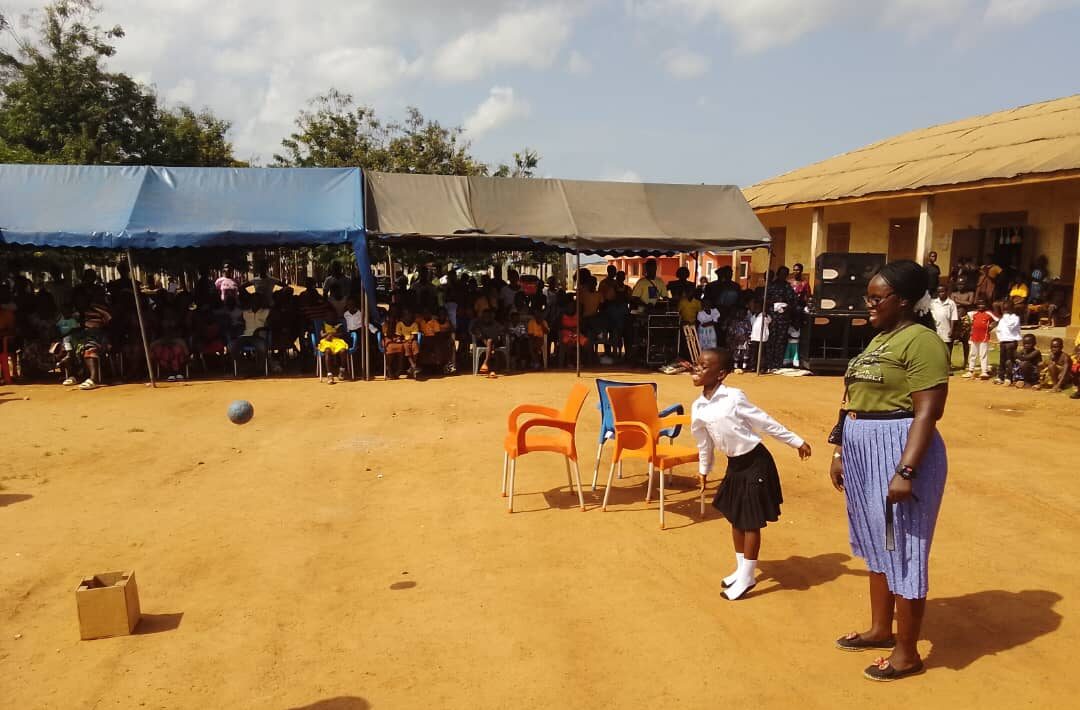Play is one of the most universally understood and instinctively joyful aspects of childhood, and yet it is often undervalued in practice. At EduSpots, we believe play is not a luxury or a distraction from learning. It is learning.
On June 11th, 2025, we joined the global celebration of the International Day of Play, responding to UNESCO’s call to recognise play as essential to every child’s well-being and development. While the global theme encouraged us to “Play Every Day”, EduSpots embraced the day with our own message: Play Makes a Brighter Mind, a reflection of our belief in play as a daily, transformative part of learning.
Across our network of Spots, local changemakers (Catalysts) and parents led play-based activities designed around our EduKidz June Monthly Challenge, part of EduSpots’ wider model of hands-on, project-based learning to support early learners. These activities are deeply rooted in the everyday realities of our communities and are brought to life using locally available materials.
As with all our monthly challenges, Catalyst was supported through structured online coaching sessions, and our EduChamp community hosted an online session, hosting panellists from EduSpots, Learn to Play, The Luminos Fund, and Sabre Education. Together, we planned how to set up simple play stations, keep activities safe, and make sure every learner (Spark) and every parent could join in. We also shared simple ideas for using everyday items and shared support resources with Catalyst and communities to make games fun and meaningful. Catalysts practised how to explain the learning behind each activity in simple words, and how to invite parents to take an active role.
Hence, on the International Day of Play across our Spots, it was not just time for fun. Catalysts felt more confident, parents felt included, and Sparks enjoyed activities that built both skills and relationships.
In many of the communities where EduSpots works, the barriers to daily play are not about belief; they are practical. Parents are stretched for time. Resources are limited. Yet, when supported and encouraged, families can turn even the simplest moments, clapping rhythms, racing to fill bottles with water, telling stories, nurturing opportunities to learn and connect.
To bring their ideas to life, participating Spots received community grants to support the organisation of their Day of Play events. These flexible funds enabled Catalysts to source local materials, create safe and engaging play spaces, and offer refreshments during the event. By placing resources directly in the hands of local leaders, the grants reinforced EduSpots’ belief in grassroots ownership and decision-making.
At various Spots, parents were not guests; they were co-owners of the space. In line with EduSpots’ community-led model, they played an active role in shaping the learning environment alongside our Catalyst. On the International Day of Play, they stepped fully into that role, dancing, sorting cut-out cards, storytelling, and engaging in imaginative games with their children.
These were not one-off activities, but moments that reflected what EduSpots stands for: learning rooted in relationships, shared responsibility, and joyful connection. The day reminded us that play does not require expensive tools or formal settings; it thrives in Spaces where communities lead, hearts are open, and every voice is valued.
One parent shared: “I just realised that as a parent, you can come up with a game that helps your child learn, even something simple like asking them to spell and write a word can build their confidence and improve their academic performance.” His reflection captured how play opened up space not only for learning, but also for love, laughter, and trust.
Photos and videos submitted by Catalyst and the community captured the energy of the day, bright colours, movement, and joy. These images are proof that community-led education works best when it includes the heart as much as the head.
Alongside the physical games, our DigiLit strand brought play into the digital space through the Read Along app by Google. Catalysts and Sparks explored the app’s interactive reading buddy, Diya, who listens as learners read, offers help with tricky words, and rewards progress with stars and badges. On the Day of Play, groups of learners and parents tried out the app together, turning reading practice into a playful activity filled with encouragement and laughter. For many families, this was their first time discovering how simple digital tools can support learning in local languages, even offline. By blending technology with play, we showed that playful learning can take place anywhere, parents and Sparks running together or on a shared phone, and still spark confidence, creativity, and joy.
At EduSpots, we are co-creating a model together with the communities we serve. Our belief in play is not about what we bring in, but the creativity, compassion, and curiosity already present in families and communities. Play is the bridge.
As we continue to build inclusive learning spaces, we hold firm to this truth: play makes a brighter mind. And when children learn through play, entire communities grow stronger.
By: Joseph Neendow

